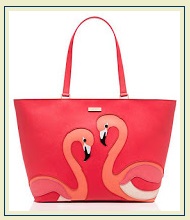The Board denied Opposer Kate Spades's motion to strike Applicant's pretrial disclosures and to exclude three subsequently-filed testimony declarations, rejecting Spade's assertion that Applicant Thatch failed to timely supplement its initial disclosures to identify the three declarants. Because the testimony related to third-party use of marks similar to applicant's marks, Thatch's identification of the witnesses after trial had begun was sufficient and timely. Kate Spade LLC v. Thatch, LLC, 126 USPQ2d 1098 (TTAB 2018) [precedential] (Order by Interlocutory Attorney Elizabeth A. Dunn).

In its initial disclosures, Applicant Thatch stated it might use at trial "[d]ocuments reflecting third party use and registration of marks similar to Applicant's." During Spade's trial period, Thatch supplemented its initial disclosures to name one Nart-anong Chinda as well as "third-party witnesses to be determined" to authenticate use of third-party marks. Thatch also served Opposer Spade with documents demonstrating third-party use.
Subsequently, in its pre-trial disclosures, Thatch identified Ms. Chinda as a trial witness, as well as Gabrial Mann and Medhi Neyestanki, to testify and introduce exhibits regarding third-party use. Thatch then filed the testimony declarations of these three witnesses. Opposer Spade argued that applicant's disclosures were untimely and deprived it of the opportunity to seek discovery from these witnesses.
The Board turned to FRCP 37(c)(1) in determining whether Thatch's pre-trial disclosures were proper and adequate. Under that rule, the Board applies a five-factor test to determine whether to strike pretrial disclosures"
"1) the surprise to the party against whom the evidence would be offered; 2) the ability of that party to cure the surprise; 3) the extent to which allowing the testimony would disrupt the trial; 4) importance of the evidence; and 5) the nondisclosing party's explanation for its failure to disclose the evidence." Great Seats v. Great Seats Ltd., 100 USPQ2d 1323, 1327 (TTAB 2011).
Supplemental Initial Disclosures: The Board observed that Ms. Chinda testified merely as an authenticating witness, and such testimony "does not add substantively to the evidence." Because her identity was promptly disclosed after she collected the third-party evidence, the supplemental initial disclosure was sufficient. Likewise the subsequent pre-trial disclosure regarding her testimony was timely, and therefore the Board denied Spade's motion to strike.
The other two witnesses, however, were not identified until Thatch's pre-trial disclosures. Applying the Great Seats factors, the Board noted that evidence of third-party use and registration "can be powerful evidence of [a] term's weakness," and so the fourth factor favored Applicant Thatch. Since there is no duty to investigate third-party use during discovery, nor is there a duty to disclose every exhibit a party plans to use at trial, the fifth factor favored Thatch.
As to the first factor, Opposer Spade "knew of the two third party users, and was aware of the subject matter ultimately covered by the testimony of Mr. Mann and Mr. Neyestanki. Even if Opposer was not aware of every fact set forth in their declarations, the record reflects that it was aware of the pertinent information therein." Alhough Thatch listed third-party use as a category in its initial disclosures, Opposer Spade did not seek discovery thereon, nor did it claim surprise when it received Thatch's supplemental initial disclosure. Instead it waited three months to challenge applicant's pre-trial disclosures.
Spade argued that cross-examination is not sufficient to challenge the testimony of these two witnesses, and that discovery is needed. The Board was not persuaded:
Based on the limited nature of the testimony regarding third party use, broad discovery is unnecessary. Opposer is free to challenge the evidence about third party use. Any need for Opposer to have learned about Applicant's evidence earlier could have been addressed months ago and Opposer has only its own inaction to blame. Accordingly, the second and third factors favor Applicant.
The Board concluded that, on balance, Applicant Thatch's failure to disclose these two witnesses until its pre-trial disclosures was "substantially justified and harmless," and so the motion to strike the pre-trial disclosures as to these two witnesses was denied.
The content of this article is intended to provide a general guide to the subject matter. Specialist advice should be sought about your specific circumstances.
[View Source]
